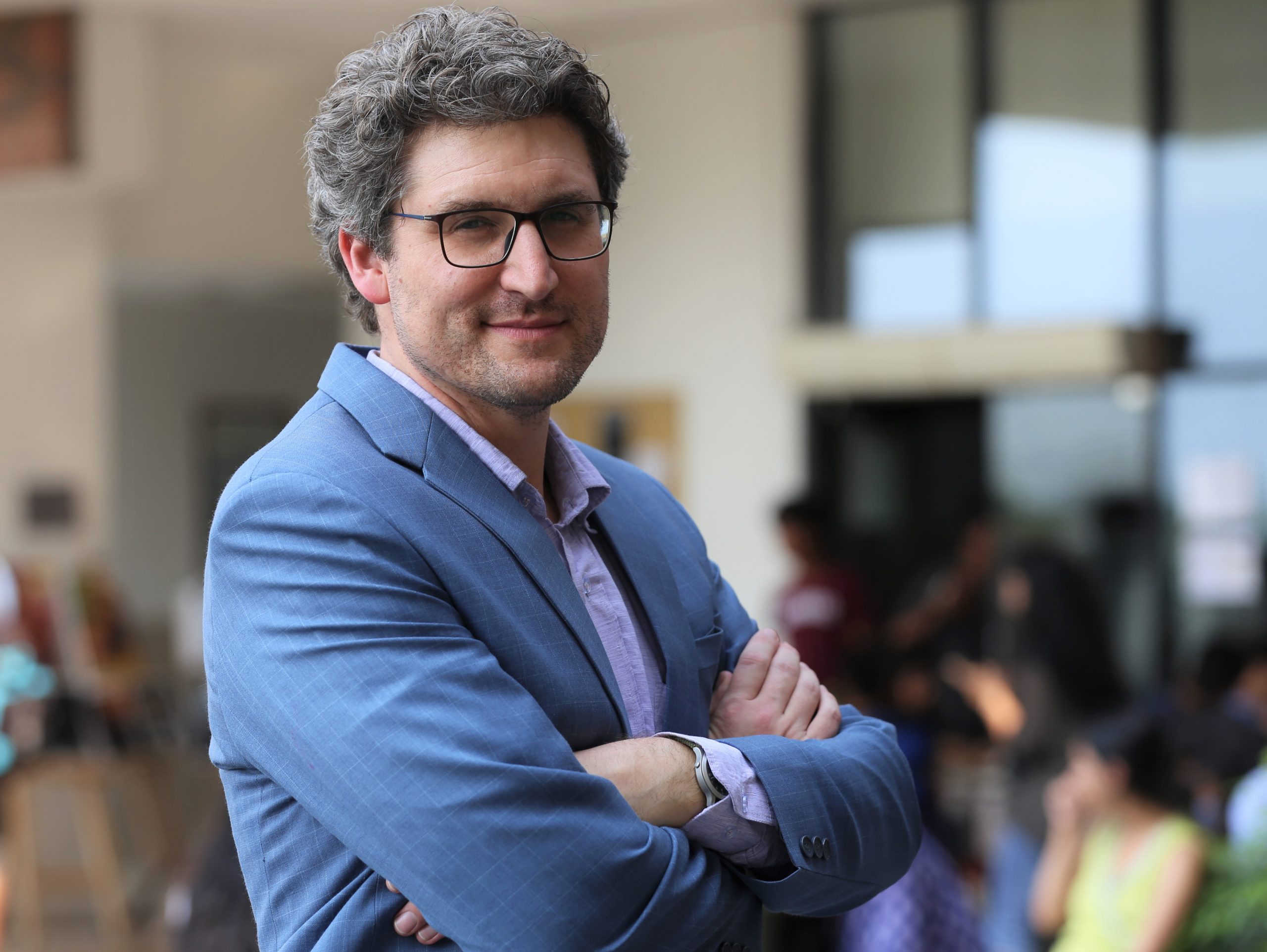Matthew Baxter received his Ph.D. from the University of California, Berkeley’s political science department in 2013. Prior to his graduate work, Matthew grew up in Syracuse, New York, graduated Phi Beta Kappa from Oberlin College (1999) with courses focused on philosophy, law & society, and religion, and taught and studied as a Shansi Fellow (2000-2002) based at The American College in Madurai, Tamil Nadu. Following his graduate work, Matthew served as a postdoctoral fellow at Rutgers University’s Center for Cultural Analysis under the theme “Totality” (2014-2015) and at Harvard University’s Mahindra Humanities Center under the theme “Everyday Violence” (2015-2016). He joined the faculty at Ashoka University in July 2018 after spending time as a visiting scholar at Cornell University’s South Asia Program (2016-2018) while retaining an affiliation at the Mahindra Humanities Center. From 2012-2014, and again in 2019, he was the Associate Editor for South Asia at the international relations journal Asian Survey where he organized the special issue “Water, Politics, and Asia.” Matthew has been an Associated Researcher (Tamil Studies) at the Institut Français de Pondichéry since 2019.
Matthew works on, with, in and through South Asia as a comparative political theorist, particularly committed to Tamil-speaking South India, Non-Brahmin politics, and the world-wide travel of critical imaginaries. An early expression of these interests can be found in “The Silence of the South and the Absence of Political Philosophy” (2005) while more recent articulations of his work include “Bhutams of Marx and the Movement of Self-Respecters” (2016), “The Jewish Gandhi Question, or, Ich and Swa: Martin Buber and the Five-Minute Mahatma” (2017), and “Two Concepts of Conversion at Meenakshipuram: Seeing through Ambedkar’s Buddhism and Being Seen in EVR’s Islam” (2019). His dissertation—For SubContinental Political Theory: On the Non-Brahmin Self-Respect Critique of Gandhian Self-Rule—was made possible by a number of grants, including multiple Foreign Language and Area Studies fellowships (2003-2006) involving the study of Tamil and some Hindi-Urdu, an American Institute for Indian Studies Fellowship (2006-2007) that provided an opportunity to translate materials associated with the Non-Brahmin Cuya-Mariyātai Iyakkam (Self-Respect Movement), and a Fulbright-Hays DDRA fellowship (2009) for a project then titled simply “Periyar, Ambedkar, and Gandhi: A Study in Comparative Political Theory.” Broadly, his approach to political theory—and its comparative framings—joins field work, archival research, and textual translation.
Having previously taught in India and with a personal investment in liberal arts education, Matthew can imagine few places to be at this moment more exciting than Ashoka University. His previous courses taught at Ashoka University include “Democracy in America & India: Political Experiences, Theoretical Articulations,” “Political Things, Religious Things,” “Outcaste across Continent and Subcontinent,” “What in the World is a Revolution?,” “The Politics of Intimacy: Desire, Proximity, and History,” and “What Does It Mean to Gather? Collective Action, Public Assembly, and Mass Movement.” During the Spring 2020 semester, Matthew is teaching courses titled “Respect, Hierarchy, & Equality” and “Reception: Travel & Theory.”






